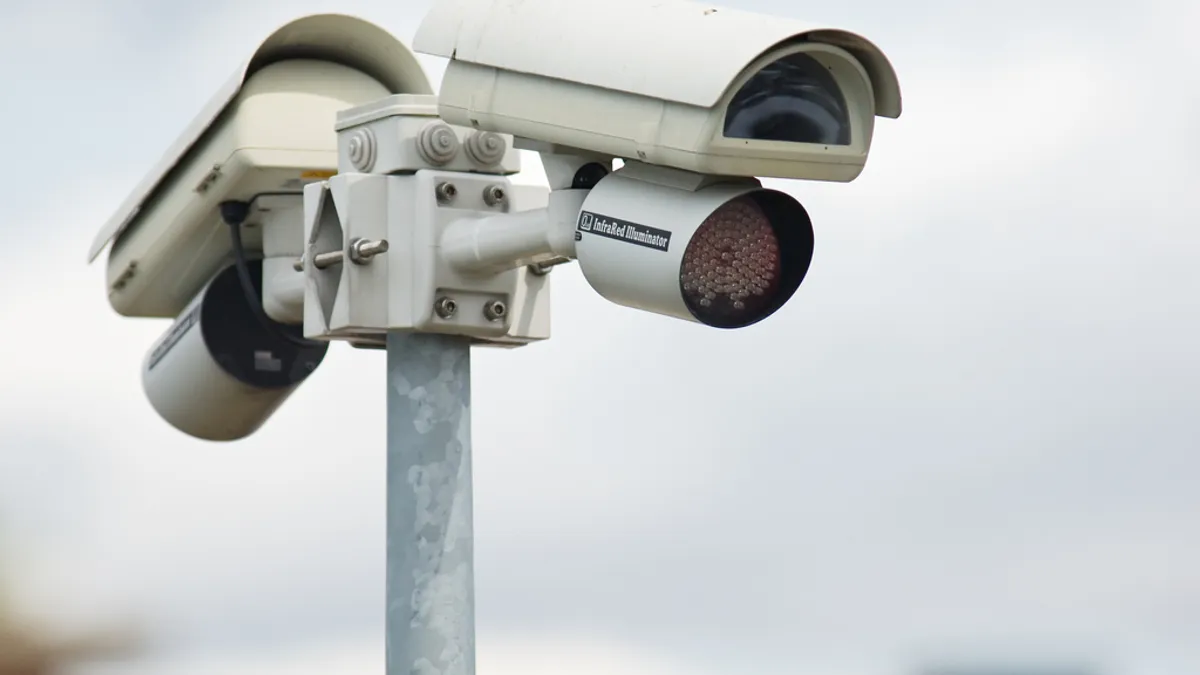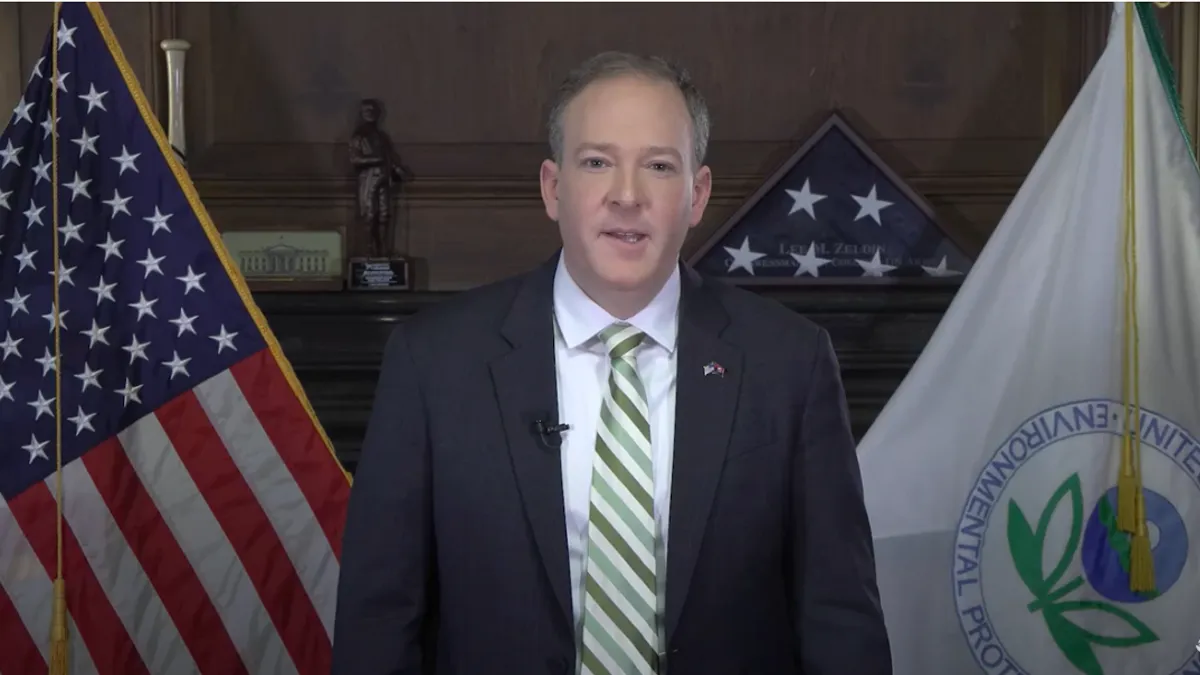Editor's Note: The following is an excerpt from Episode 2 of City Surveillance Watch, a limited podcast series from Smart Cities Dive. Follow along with the audio below, beginning at 40:45.
The Kansas City, MO Police Department (KCPD) has used license plate readers since 2010, installing them in locations throughout the city and on police vehicles.
Like other law enforcement agencies, they publicize when tech investments pay off by helping to solve crime. KCPD detectives even made a video discussing how surveillance camera footage was used in conjunction with data from the city’s license plate readers to identify a 2019 murder suspect.
It’s worth noting that video touting the police department’s tech use was produced for the Police Foundation of Kansas City — a nonprofit that helps the Kansas City Missouri Police Department purchase technology. The foundation has provided drones to KCPD, along with other tech like video analytics software and license plate readers. The foundation’s website lists sponsors including local bank and real estate firms and other charities.
Police foundations across the country help law enforcement pay for a variety of surveillance tech including drones, which are becoming common tools for aerial surveillance. Take Chula Vista, CA: The police department there in 2019 praised the Chula Vista Police Foundation for purchasing two new drones to add to its collection.
The department’s website says they use drones as first responders to document crime and accident scenes, search for missing or wanted persons, or to evaluate fires or damage after major incidents or natural disasters.
But it’s worth checking out where the Chula Vista Police Foundation’s money comes from. The foundation’s sponsors page lists a handful of local real estate companies, local dental and medical healthcare providers — that sort of thing.
But you’ll also find some of the biggest names in surveillance tech.
Motorola is listed in the foundation’s Lieutenant’s Circle. Companies including Axon – which makes tasers, cameras and drones, and Verizon – which provides video surveillance technologies and 5G connectivity services – they’re in the Chula Vista Police Foundation’s Captain’s Circle of sponsors.
You might think of this as another way for surveillance tech firms to promote their products in the law enforcement industry, and even help buy their products. These companies support police foundations across the U.S.
According to the investigative nonprofit, Little Sis, Amazon, Microsoft and Motorola partner and donate to the Seattle Police Foundation. Motorola also donates to police foundations in Washington, DC, Chicago and Detroit. Verizon has supported foundations in Chicago and New York.
So, yeah — private dollars are seeding surveillance tech all over the country.
Let’s head to San Francisco, where there’s another growing privately-funded camera network. This one is supported through funding from a tech entrepreneur named Chris Larsen. He’s spent millions of dollars to buy high-definition cameras stationed throughout the city, along with the equipment used to monitor those cameras.
And there’s no affiliation with local law enforcement in this case. Larsen told the New York Times in July that the “winning formula” for trust between the community and law enforcement is complete community-wide camera coverage controlled by citizens.
But the public safety surveillance tech trend lies in public-private partnerships. And companies like Motorola – which supplies tech for that San Francisco project and for the Real Time Crime Center in New Orleans – they see opportunity in that public-private trend.
Motorola in July introduced a video security and analytics technology suite designed specifically for public-private partnership programs. It includes new license plate recognition camera tech that can link up into police monitoring centers through the cloud.
The company did not respond to multiple requests to comment for the City Surveillance Watch podcast.
Motorola could be making a smart bet. Whether we’re talking about programs funded by police foundations that benefit corporate interests, or funded by local businesses picking up the tech tab, we could see more privately-funded anti-crime tech interventions like Project Green Light in Detroit, Safecam in New Orleans, or rogue efforts like what’s happening in San Francisco.
Think about it: city coffers have run dry amid the pandemic. Meanwhile, residents are pushing for cities to defund the police. It’s worth pondering whether these forces will inspire more public-private partnerships or privately funded tech to fill in the gaps where there’s no longer government funding or resources.
If that happens, some argue these private approaches will push tech decision-making that was once subject to government accountability and oversight further into the shadows — where they are not always subject to legislation or policy crafted by and voted on by elected officials; where they aren’t always subject to technology impact reviews or community comment periods; and where they are not always subject to standard government oversight, transparency and accountability.
Hungry for more? Subscribe to City Surveillance Watch today on Apple Podcasts, Spotify, Stitcher or wherever you listen to podcasts.



















